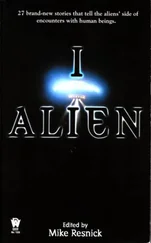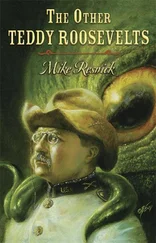Mike Resnick - Birthright
Здесь есть возможность читать онлайн «Mike Resnick - Birthright» весь текст электронной книги совершенно бесплатно (целиком полную версию без сокращений). В некоторых случаях можно слушать аудио, скачать через торрент в формате fb2 и присутствует краткое содержание. Жанр: Старинная литература, на английском языке. Описание произведения, (предисловие) а так же отзывы посетителей доступны на портале библиотеки ЛибКат.
- Название:Birthright
- Автор:
- Жанр:
- Год:неизвестен
- ISBN:нет данных
- Рейтинг книги:4 / 5. Голосов: 1
-
Избранное:Добавить в избранное
- Отзывы:
-
Ваша оценка:
- 80
- 1
- 2
- 3
- 4
- 5
Birthright: краткое содержание, описание и аннотация
Предлагаем к чтению аннотацию, описание, краткое содержание или предисловие (зависит от того, что написал сам автор книги «Birthright»). Если вы не нашли необходимую информацию о книге — напишите в комментариях, мы постараемся отыскать её.
Birthright — читать онлайн бесплатно полную книгу (весь текст) целиком
Ниже представлен текст книги, разбитый по страницам. Система сохранения места последней прочитанной страницы, позволяет с удобством читать онлайн бесплатно книгу «Birthright», без необходимости каждый раз заново искать на чём Вы остановились. Поставьте закладку, и сможете в любой момент перейти на страницу, на которой закончили чтение.
Интервал:
Закладка:
Rojers walked desolately out of the incubation room, down the long, well-lit corridor, past his own office, and stopped before Herban's door. He looked briefly at the “Chief of Biochemistry” sign painted on the door in neat gold lettering, grunted again, and walked in. Herban, a small man with medium brown skin, short black hair—what there was left of it—and deep furrows on his forehead, was waiting for him, his feet up on his desk, his hands behind his head. “Well?” said Herban.
“Can't you tell by looking at me?” asked Rojers wryly. “So you go back to the drawing board,” said Herban. “It's not the end of the universe.” “It's damned near the end of mine,” replied Rojers disgustedly. “Today marks my tenth anniversary here, you know.” Herban nodded. “That means I've averaged 109.8 failures for each and every damned year!”
“Feeling sorry for yourself?” chuckled Herban.
“I don't see anything particularly funny about it!” snapped Rojers.
“No, I don't suppose you would. Yet.”
“What do you mean, yet?” said Rojers. “I've had it. I'm through. Consider my notice given.” “Given, but not accepted,” said Herban. “Sit down and have a cigar.” “Don't you understand?” said Rojers irritably. “I'm quitting.” “Then consider the cigar a going-away present,” said Herban. “Actually, I'm surprised it took you this long. The first time I decided to quit, I'd done only about three hundred experiments. It's all a matter of self-confidence, I suppose. I knew how good I was, and I figured if I couldn't pull the trick off in three hundred tries, I'd never manage it. It took another thirty years to realize that I'd had three hundred successes. You, if my mathematics don't betray me, have had just two shy of eleven hundred successes, give or take a few. Your jaw's hanging open, boy. Why not fill it with a cigar and we'll have a little talk.” Rojers sat down heavily, staring at his mentor. Without thinking, he bit off the tip of his cigar and lit it up. “Ah, but I do like a good smoke,” said Herban, taking a deep puff and uttering a sigh that was as close to ecstasy as he ever got. “I do indeed. You destroyed the body, I presume?” Rojers nodded.
Herban shrugged. “Just as well, I suppose. No sense letting it grow up or we'd all be out of work around here.”
“I don't understand,” said Rojers slowly. “I mean, the thing was a freak, just like all the rest. Minimal intelligence, low reaction to stimuli, legs quite stunted. What exactly are you trying to tell me?” “The truth. With a capital T, not the small t they use around here. It took me more than half a lifetime to stumble upon it, probably because it's so bloody simple. And, of course, all of my predecessors figured it out as well, and kept their mouths shut for the same reason I do. But you're the brightest lad around here, even though you're only in your thirties, and since I plan on retiring in the next few years and blowing my pension on fat cigars and fatter women, it seems only logical that you'll be taking my place—if you decide to withdraw your resignation, that is. Which is why we're having this little talk. No reason to let you stumble around in the dark for years the way I did.” “I assume,” said Rojers coldly, “that there is some part of the Project that I fail to understand.” "Some part!" Herban laughed. “Why, boy, you don't understand the whole damned thing! Now, don't
give me a sour expression like that. You're in good company. Nobody else in the galaxy does either, except me. And even though I'm a goddamn genius, I took almost thirty years to figure it out myself. I often marvel that it didn't dawn on me after the third or fourth experiment.” He took a deep drag on his cigar, opened his mouth slightly, and allowed the smoke to trickle out at its own speed. “But hell, I was young and idealistic and all that sort of nonsense. I suppose I couldn't be blamed for believing in the Project any more than you can.”
“Are you trying to tell me that the Project is a fraud?” demanded Rojers, a sense of moral outrage
beginning to creep across his mind.
“Well, yes and no,” said Herban. “Yes and no.” “Just what is that supposed to mean?”
“Exactly what I said,” said Herban. “Let's see if we can't get you to use a little of that brain of yours. After all, if you're going to become the next Chief Biochemist of the Oligarchy and points north, nobody should have to spoon-feed conclusions to you. Tell me what you think the Project is all about.” “Every schoolboy knows what it's all about,” said Rojers irritably. “What I'm trying to figure out is what you're driving at.”
“Bear with me for a little while.” The older man grinned, relighting the cigar. “And tell me about the Project.”
“I feel like an idiot,” said Rojers. “Okay. The Project is attempting to hasten the course of evolution by artificially developing Homo superior." “A fair enough description. And, in that, the Project is absolutely legitimate. Well, ‘legitimate’ is a misleading word; let me say, rather, that in that respect the Project is sincere. Its motives are of the purest nature, and its virtue—if not its efficacy—is beyond question.” “Then I still don't understand what you mean.” “Well, let's begin at the beginning, shall we, boy?” said Herban. “Do you know when the Project began?”
“Not exactly. About four hundred years ago,” said Rojers. “Try four thousand. ” Herban grinned. “You'll be much closer to the truth. It began, secretly to be sure, in the waning days of the Republic. Originally, only four men worked on it, and the number always remained under a dozen until about four centuries ago—388 years, to be exact—when the Oligarchy decided to make it public because of political expediency.” “Four thousand?'’ mused Rojers. “But why was it kept secret?” “For reasons of utmost necessity,” said Herban. “You see, originally the idea was to create a true race of Homo superior, a race that would supersede Man. Well, not really supersede him, since no one was all that anxious to bring about our own extinction; but to, shall we say, represent Man among the myriad worlds, to take and conquer huge new domains for us, and then to move on while we took over the fruits of their labor. Nifty idea, that. They must have dreamed of making a race of men with the intellect of a Robelian, the physique of a Torqual, the ESPer abilities of a Domarian, and, with all that, total loyalty to humanity.” He shrugged. “Well, the science was young then, so I suppose they can be excused for their dreams. And the need for secrecy was twofold: to avoid alarming good old Homo sap, and to avoid giving advance warning to the various other races that we were planning to spring our little surprise on. And it stood to reason, naturally, that with limited funds and a minuscule number of trained biochemists, they made so little progress for thirty-six hundred years as to make no difference at all. “Then came the Setts. Everybody knows about them now, but originally it was all hush-hush. After all,
they were the first race ever to defeat us in anything resembling a major battle. It happened something
like five centuries ago, and, since it occurred so far out on the Rim, the Oligarchy managed to cover it up for more than a century without much difficulty. Then the news finally got back to Deluros VIII, Sirius V, and some of the other major worlds, and all hell broke loose. The people demanded that the Oligarchy do something. For a decade or so the whole damned government racked its collective brain to come up with an answer before they were overthrown, and then some pigeonholer remembered the Project. Overnight, we were given a staff of two hundred men, which gradually increased to three thousand, and our budget was absolutely astronomical. The science of biochemistry learned more in the next ten years than it had in the past seventy centuries, and the Oligarchy had sold the public on a pipedream: we were going to create a race of supermen that would blast the Setts to kingdom come. Worked out beautifully all the way around. Of course, we found out a little while later that the Setts were terribly vulnerable to measles, and they surrendered without any trouble once we sprayed their home world with about a million tons of the virus. But the people had bought the dream of a super race, and the government found it politically expedient to keep up work on the Project.” “Is that what you meant when you implied it was all a fraud?” asked Rojers hotly. “That the Oligarchy really doesn't want to come up with Homo superior ?” “Not at all,” said Herban. “They probably don't want any supermen knocking about—and, if they thought about it, neither would the populace at large. But no one has tried to hinder us in any way. If God Himself popped out of one of our incubators, there's no way anyone could make us put Him back. Nor,” he added with a chuckle, “could they make Him go back if He decided He didn't want to. But that's not the case. God isn't about to crop up around here. At least not as a direct result of our experiments.” “You keep saying that,” said Rojers, feeling more lost than ever. “Why?” “It should be obvious,” said Herban. He pressed a series of buttons on his desk computer, waited for a moment, then glanced at the readout. “As of this minute, we have made 1,036,753 experiments involving human genes. We have tried to force evolutionary patterns on DNA molecules, we have tried to create out-and-out mutations, we have bombarded genes and chromosomes with preset patterns and at random. We have tried well over three thousand approaches, and hundreds of thousands of variations on these approaches. In the process, we've done a hell of a lot for the science of parthenogenesis, but we haven't come up with our supermen yet. Did it ever occur to you to ask why?” “No more than once an hour or so.”
Читать дальшеИнтервал:
Закладка:
Похожие книги на «Birthright»
Представляем Вашему вниманию похожие книги на «Birthright» списком для выбора. Мы отобрали схожую по названию и смыслу литературу в надежде предоставить читателям больше вариантов отыскать новые, интересные, ещё непрочитанные произведения.
Обсуждение, отзывы о книге «Birthright» и просто собственные мнения читателей. Оставьте ваши комментарии, напишите, что Вы думаете о произведении, его смысле или главных героях. Укажите что конкретно понравилось, а что нет, и почему Вы так считаете.











